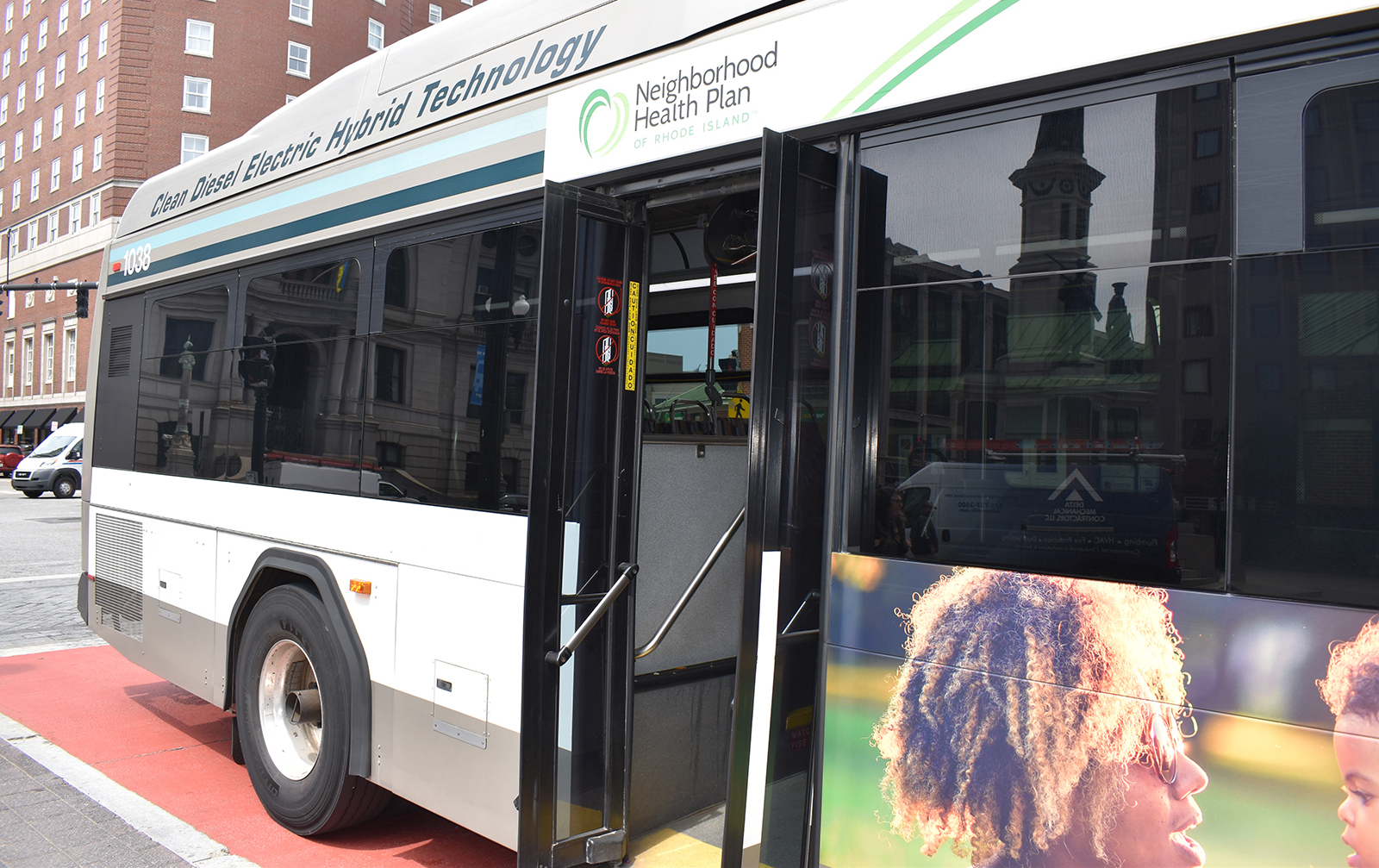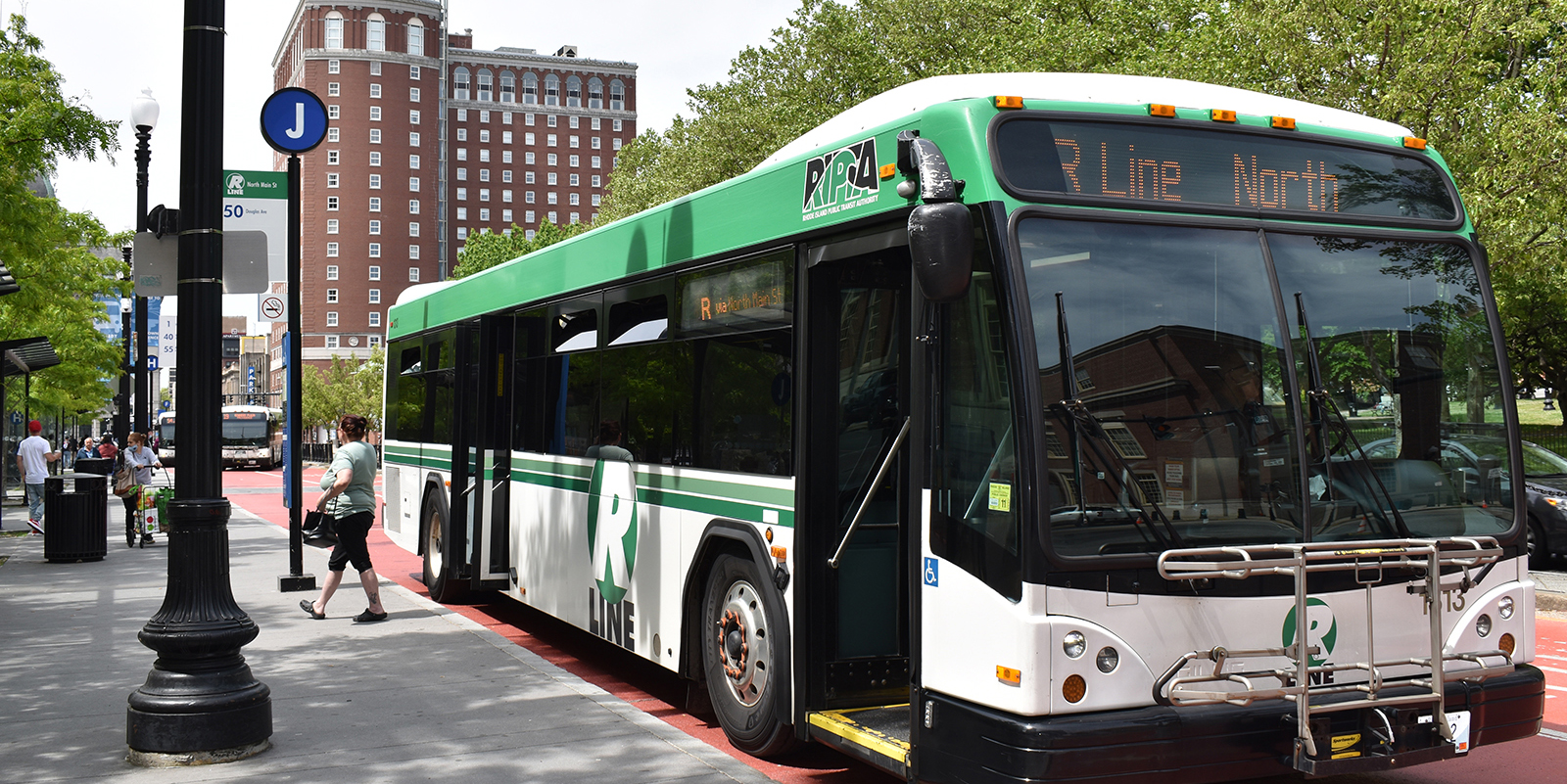Lines Drawn as Paint Dries on Remodeled South Water Street
October 22, 2021
PROVIDENCE — Tensions continue to rise between business owners and bicycle advocates on either side of a newly completed bike lane project on South Water Street, even with the news that the Rhode Island Department of Transportation (RIDOT) would not pursue legal action against the city.
The Providence Committee on Finance took cautious steps to settle the situation at an Oct. 19 meeting, while the threat of a $4.4 million lawsuit from RIDOT loomed large over the city. Two days later, RIDOT issued a statement indicating it would no longer press the issue after the Federal Highway Administration (FHWA) refused to get involved in the matter.
“We sympathize with the abutters but since FHWA is not supportive of any corrective action, we encourage them to seek remedy through City government,” according to the RIDOT statement. “However, if the FHWA has no interest in getting involved we have no choice but to let the construction stand.”
At the Oct. 19 meeting, the debate over the project seemed unlikely to diminish anytime soon. Committee chairperson Jo-Ann Ryan introduced nine exhibits and nearly 800 pages of documentation detailing both sides of the issue before continuing the discussion to a later date.
“The Providence Finance Committee has a duty and an obligation to the taxpayers of the city of Providence to make sure that projects are funded appropriately, and work is done effectively and efficiently,” Ryan said. “As stewards of our finances, that’s our role.”
The heart of the matter
The controversy stems from a Providence Great Streets Initiative project that sought to reconfigure South Water Street to provide for safer, more sustainable travel. Plans were publicly presented by the Providence Department of Planning and Development (DPD) starting in March 2019 and as recently as June. A traffic study on the street, contracted by the city in March 2020, determined one lane would be more than sufficient for the level of traffic on the one-way East Side street.
In September, South Water Street’s two lanes were reduced to one lane of vehicle traffic. Adjacent parking spaces and a separated two-way urban bike trail were added.
On Oct. 1, after construction was in progress, a group of businesses owners and university representatives sent a letter to RIDOT traffic safety engineer Steven Pristawa asking for intervention in the project. According to the group of 10, the public outreach regarding the project was insufficient and the reconfiguration would not accommodate future traffic levels associated with new residential developments and the return of office workers to the downtown area.
“We want to be clear, we do not oppose creation of a bicycle path along South Water Street, but we do not think it should come at the expense of a lane of travel which is needed for travel, deliveries, RIPTA service and which is the only access road to the interstate highway I-195 from the Jewelry District and East Side of Providence,” according to the group’s letter.
Threat from RIDOT
On Oct. 6, RIDOT director Peter Alviti responded by directing Mayor Jorge Elorza to “stop all construction activity to the roadway on South Water Street” until RIDOT and FHWA could ascertain if the work was in violation of a 22-year-old South Water Street maintenance agreement.
“Also, be advised that failure to comply with this request may place the City in jeopardy to reimburse the State and FHWA for the costs of the 1999 Project in the amount of approximately $4.4 million dollars,” his letter stated.
The maintenance agreement, signed by the city, RIDOT, and FHWA on July 21, 1999, noted the city is responsible for maintaining all aspects of the project in a manner satisfactory to the state. According to RIDOT, changes for purposes other than transportation require state and federal approval, but neither was given notice of the Great Streets Initiative. (For the record, bike lanes, bicycles, and pedestrian paths are transportation).
According to RIDOT’s Oct. 21 statement, the proposed penalty is off the table after FHWA declined to get involved following a meeting between the two agencies. Still, RIDOT advised that cutting a major highway connector road to one lane “is not the best course of action.”
“It is our opinion that taking a lane of traffic on South Water Street creates traffic and safety issues but the FHWA, which was a signatory to the contract, does not want to get involved,” the RIDOT statement read. “Therefore, we will not press the issue any further.”
Where the debate stands
In an Oct. 12 statement, City Council member John Goncalves responded to the business abutters and RIDOT by saying the project was the product of two years of planning. He noted DPD and the City Council office sent community mailings, and several public meetings were held between March 2019 and June 2021.
Goncalves, who was involved in the project since its inception and conducted two public meetings on the project, said the plans were developed to reduce safety concerns, noise pollution, and street racing, while maintaining on-street parking and enhancing quality of life.
“I know that some business owners on South Water are concerned about the impacts — they just survived an incredibly trying few years and it’s entirely understandable why they would be afraid of something new,” he wrote.
After an August meeting with business abutters, Goncalves said plans were altered to accommodate large vehicles, provide more room and signage for loading zones, improve traffic flow, and pause the installation of speed humps.
In an Oct. 21 statement, after RIDOT’s dismissal of its threat, Goncalves said he would “remain committed to collaborating with businesses, developers or any other parties who are concerned about South Water Street” and continue to advocate for multimodal infrastructure plans.
Though not listed as a public hearing, Sharon Steele, president of The Jewelry District Association, offered public comment at the Oct. 19 Finance Committee meeting. Steele, who signed onto the Oct. 1 letter and has previously challenged bike projects in the Jewelry District, claimed the project was poorly planned. She flagged concerns over narrow lanes, pedestrian safety, traffic volume, and a quick merge as traffic moves onto the Crawford Street Bridge.
“The cruel hard reality is that you design for the real world on the ground and what is proposed,” Steele said. “This design … literally did not take into [consideration] any of the standard engineering practices.”
Liza Burkin, lead organizer of the Providence Streets Coalition — who wrote on Twitter that she “did not know public testimony would be allowed” at the Oct. 19 meeting — said the coalition received more than 160 letters in support of the bicycle lanes.
RI Transit Riders also issued a statement in support of the bike project, stating that criticism of the project “is misguided and exaggerated.”
“We applaud the City of Providence for its work on South Water Street,” the statement read, “and encourage the City to continue working closely with RIPTA to further integrate transit in future street-transformation projects.”




sad that there is always so much opposition, even from Brown and RISD that should knw better, to taking a bit of the public streets to improve conditions for those who walk or bicycle. In this case, while I can understand that drivers will want to speed on a 2-lane one-way street, those conditions can make it dangerous to cross the street, especially for those who are older, or coming off the pedestrian bridge, or are transit riders who want to access a bus stop. And all of us benefit if there is more walking and biking (and use of transit) instead of only using polluting, noisy vehicles requiring fuel that sends our local dollars out of our economy to out of state oil interests.
Wow. Just Wow. Business owners opposing this project need to consider that we need more and larger projects like this not fewer. Additionally, don’t complain at the end of a long process. Show you’re not paying attention. Please keep supporting bike/pedestrian/mass transit for Providence. We can make it a truly great city if we work together on these issues.
Grow Smart RI was proud to bestow an ‘Outstanding Smart Growth Planning Award’ to the City of Providence Great Streets Initiative in 2020. Among the reasons for the award was the robust community engagement and public input that factored into the city’s planning. Even positive change can cause anxiety, but Providence is leading the state in making streets safer and more comfortable for all residents. Carry on Providence!
https://youtu.be/ycYhqV-LcE0